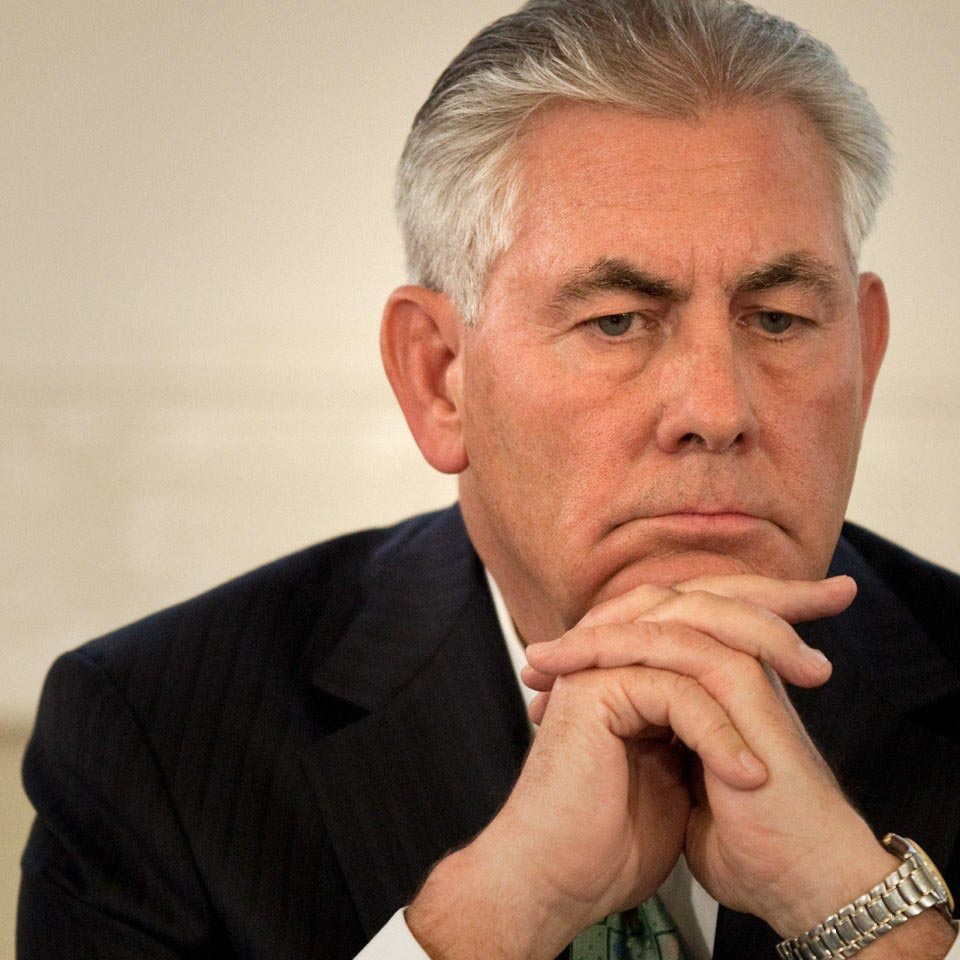Having already soaked up a slew of international criticism over what is characterised as its healthy contribution to oil-related climate degradation, ExxonMobil, one of the world’s most powerful energy giants, was on Wednesday October 30, compelled to endure the sight and sounds of one of its most high-profile former bosses conceding that its longstanding posture notwithstanding, the company knew the climate change was not just a reality but that it was a real issue.
In a presentation in a New York courtroom where the company’s former Chief Executive Officer and for a brief period US Secretary of State, Rex Tillerson, took the witness stand to testify in a securities fraud trial that asserts that ExxonMobil knew for years that global warming was a significant threat, Tillerson declared that climate change was a real issue that was likely to “live with us for evermore.”
With the world’s leading energy companies, not least ExxonMobil seen as ‘leaders of the pack’ in terms of environmental degradation, the sight of a former ExxonMobil numero uno testifying in a US court under oath about the subject of climate change secured the considerable attention of the international media.
“We knew, we knew it was a real issue,” Tillerson is quoted as saying. “We knew it was a serious issue and we knew it was one that’s going to be with us now, forevermore, and it’s not something that was just suddenly going to disappear off of our concern list because it is going to be with us for certainly well beyond my lifetime,” Tillerson is reported as saying.
Tillerson, who quit ExxonMobil three years ago to serve as Secretary of State in President Donald Trump’s cabinet, was at the time testifying at a trial connected to a lawsuit against Exxon by the New York Attorney General, claiming that the company deliberately misled its investors about the way it accounted for the financial risk of climate change.
While Tillerson rejected the claim in his presentation to the court that ExxonMobil had misled its investors, his presentation did not refute the position that Exxon had played a role in creating the extant climate change-related conditions. His position, according, to reports deriving from his testimony, asserts that the company sought to address the issue when it became apparent. Part of Tillerson’s argument, according to one report is that the issue was one of “shared blame” since “Exxon was providing products demanded by society.”
One of Tillerson’s arguments during his presentation was that globally, the demand for enhanced standards of living which was linked to fossil fuels meant that the world as a whole faces challenges making the kinds of changes necessary to address the impacts of climate change.
“If the economies are going to continue to not just perform, but grow, if people are going to continue to want to improve their quality of life, sustain their quality of life, they’re going to have to have energy, a lot of it, and the demand is going to keep growing,” Tillerson is quoted as saying. Accordingly, he alluded to what he said was a ‘natural tension” between that desire for growth and fixing climate change. “That’s really the challenge that policymakers and legislators are confronted with,” he said.
In what is bound to go down as a landmark concession by one of ExxonMobil’s most influential figures in its history, Tillerson conceded that the company recognises “the risk of climate change,” and also recognised “that it was becoming increasingly important to society, more broadly, and that policymakers and legislators were going to be responsive to their constituents and to the concerns of society, and they would begin to want to find ways to mitigate, if not reverse the effects of climate change…“We had been following the signs of climate change for many, many years,” he said.
Ironically, a September 2019 report by the think tank Carbon Tracker names ExxonMobil as one of several global heavy hitters in the oil & gas industry that are in the process of pumping up to £40 billion in projects which it says are undermining the fight against climate change. The companies that also reportedly include BP and Shell are, the report says, pursuing projects that are incompatible with the 2015 Paris Agreement, which aims to limit global warming to 1.5C.
Scientists have warned a 1.5C temperature rise is the tipping point at which climate impacts, such as sea-level rise, natural disasters, forced migration, failed harvests and deadly heat waves, will rapidly start to intensify.
“To meet climate goals, it is an unavoidable consequence that fossil fuel use must drop dramatically,” Carbon Tracker’s report said. Previous research on the implications of climate change for oil & gas companies, including influential reports by Carbon Tracker, has contributed to a wave of investor pressure on major firms to demonstrate that their investments are aligned with the Paris goals.
Despite warnings of an impending climate crisis there is still no indication of a policy shift on the part of the big players in the oil & gas industry in the direction of a reduction in the production of fossil fuels. ExxonMobil’s current CEO Darren Woods reportedly asserted recently that the continuing growing demand for energy cannot be met by renewable energy alone, citing estimates by the International Energy Agency (IEA) to the effect that £17 trillion of new investment in energy production is needed by 2040, representing a “compelling investment case” for fossil fuels.
Less than a month ago new data generated by the US-based Climate Accountability Institute listed a collection of twenty oil companies which it says are driving the climate emergency that threatens the future of humanity, and details how they have continued to expand their operations despite being aware of the industry’s devastating impact on the planet.






